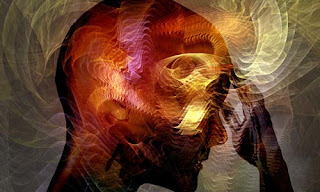 Organizations are made for employees to work
there and not opposite: employee should fit the organization. As the
organization grows larger and more complex, management at the top lead and
decide less by firsthand experience, but rather more and more on heavily
processed data. From their standpoint they rarely see business flowing in the
same way as do people down in production or on the sales floor. To understand
huge amounts of data and information that is streaming toward them, after a throughout
long training, they finally achieve to see the reality through the distorting
glasses they've had to put on. Decisions they make and the responsibility they
shoulder relies on tangible data. But these glasses somehow filter out emotions,
feelings, sentiments, moods, and almost all the nuances of human situations
that are part of everyday organizational culture consequently filtering or
better losing all the tacit knowledge that drives business processes.
Organizations are made for employees to work
there and not opposite: employee should fit the organization. As the
organization grows larger and more complex, management at the top lead and
decide less by firsthand experience, but rather more and more on heavily
processed data. From their standpoint they rarely see business flowing in the
same way as do people down in production or on the sales floor. To understand
huge amounts of data and information that is streaming toward them, after a throughout
long training, they finally achieve to see the reality through the distorting
glasses they've had to put on. Decisions they make and the responsibility they
shoulder relies on tangible data. But these glasses somehow filter out emotions,
feelings, sentiments, moods, and almost all the nuances of human situations
that are part of everyday organizational culture consequently filtering or
better losing all the tacit knowledge that drives business processes. Organizational culture is the sum of values and
rituals defined by rules. It is also a part of a “bigger picture” that
surrounds an organization. This poses some problems if organization shock-wave through
different cultures.
Organizational culture is the sum of values and
rituals defined by rules. It is also a part of a “bigger picture” that
surrounds an organization. This poses some problems if organization shock-wave through
different cultures.
Four decades ago IBM tried to unify corporate
culture in its subsidiaries all over the world. Geert Hofstede
carried out a world-wide survey on employee values. The result was very informative
and demonstrative. There were other researchers of the same topic too. A common
conclusion of all those studies is that “we are definitely different”.











